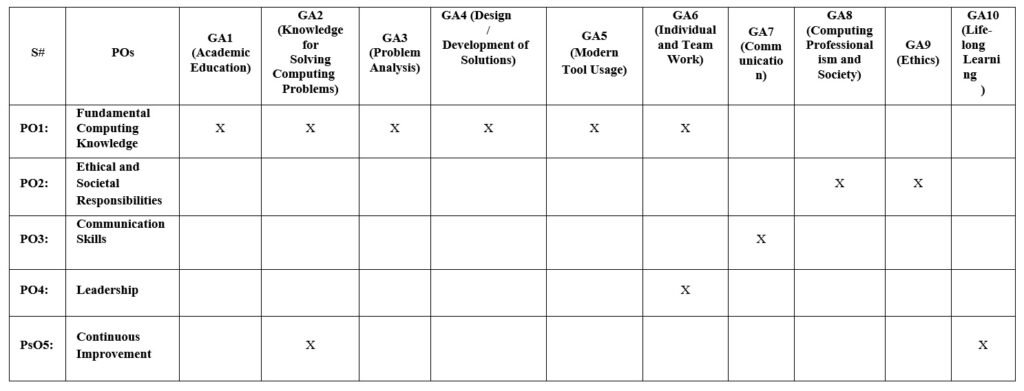Bachelor of Science in Computer Science BS-CS
BROWSE LINK
BS-Computer Science
COURSE OVERVIEW
Computer Science is the study of the theoretical and practical aspects of computer technology and computer usage. The main purpose of INU BS computer science is to provide students with a durable foundation, with a comprehensive set of electives so that computer scientists can be produced. Computer science major attracts students who are interested in both the mathematical theory and technical applications of computer science.
Most employers look for students who are good computer scientists but also understand the tools and techniques of mathematics, science and industry and are able to communicate effectively. The INU BS computer science program is also for the mathematically adept student who wishes to become a computing professional with knowledge of relevant applications areas. The degree path emphasizes problem solving using computer program design, analysis and implementation, and includes a theoretical foundation as well as “hand-on” experience
Program Objectives (POs)
- Fundamental Computing Knowledge is a graduate performing his/her professional roles with an understanding of fundamental computing knowledge acquired during studies.
- Ethical and Societal Responsibilities A graduate who is fulfilling his/her professional responsibilities taking into account ethical and societal concerns.
- Communication Skills A graduate who is effective in oral and written communication of technical and managerial information.
- Leadership A graduate who is effective in a leadership role of a group/team assigned to him/her or in an entrepreneurial environment.
- Continuous Improvement A graduate who keeps exploring new fields and areas in computing for his/her organization or conducts research for academic pursuits.
Graduate Attributes (GAs)
The Department of Computer Science at Iqra National University Peshawar (INU) emphasizes key graduate attributes, such as Knowledge, Problem Solving, Creativity, Communication, Teamwork, and Lifelong Learning, to enhance employability. These attributes are integrated into the curriculum and aligned with national and international accreditation standards, including those of the National Computing Education Accreditation Council (NCEAC). INU adopts NCEAC’s Graduate Attributes without modifications, ensuring graduates possess the skills required to meet industry demands and succeed in their careers.
1 | Academic Education | Completion of an accredited program (BS CS)of study designed to prepare graduates as computing professionals |
2 | Knowledge for Solving Computing Problems | Apply knowledge of computing fundamentals, knowledge of a computing specialization, and mathematics, science, and domain knowledge appropriate for the computing specialization to the abstraction and conceptualization of computing models from defined problems and requirements |
3 | Problem Analysis | Identify, formulate, research literature, and solve complex computing problems reaching substantiated conclusions using fundamental principles of mathematics, computing sciences, and relevant domain disciplines |
4 | Design/ Development of Solutions | Design and evaluate solutions for complex computing problems, and design and evaluate systems, components, or processes that meet specified needs with appropriate consideration for public health and safety, cultural, societal, and environmental considerations |
5 | Modern Tool Usage | Create, select, adapt and apply appropriate techniques, resources, and modern computing tools to complex computing activities, with an understanding of the limitations |
6 | Individual and Team Work | Function effectively as an individual and as a member or leader in diverse teams and in multi-disciplinary settings |
7 | Communication | Communicate effectively with the computing community and with society at large about complex computing activities by being able to comprehend and write effective reports, design documentation, make effective presentations, and give and understand clear instructions |
8 | Computing Professionalism and Society | Understand and assess societal, health, safety, legal, and cultural issues within local and global contexts, and the consequential responsibilities relevant to professional computing practice |
9 | Ethics | Understand and commit to professional ethics, responsibilities, and norms of professional computing practice |
10 | Life-long Learning | Recognize the need, and have the ability, to engage in independent learning for continual development as a computing professional |
Mapping of POs with GAs for the BS-CS program:
Career Prospects:
Computer science is primarily concerned with information processes, the structure and procedures to represent them, and the systems for their implementation. Advancements in technology mean there is no shortage of need for computer scientists in today’s world. Training in computing and software development can take one to sound technical positions. Graduate student’s critical thinking, analysis, research, and creative problem-solving skills are highly valued in a variety of fields. The academic track opens the door to many other careers like Computer Programmer, Computer Engineer, Hardware Engineer, Information Systems Analyst, Software Engineer, Systems Analyst, Data Communications Analyst, Programmer-Analyst, Telecommunications Specialist, Computer Security Specialist, Computer Support Specialist and Teacher.
Contact Details:
Mr. Abrar Khan, In-Charge Program BS (Computer Science), abrar42001@gmail.com (Phone #: 0332-9051971)

